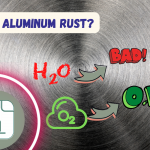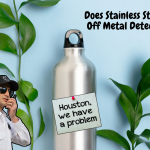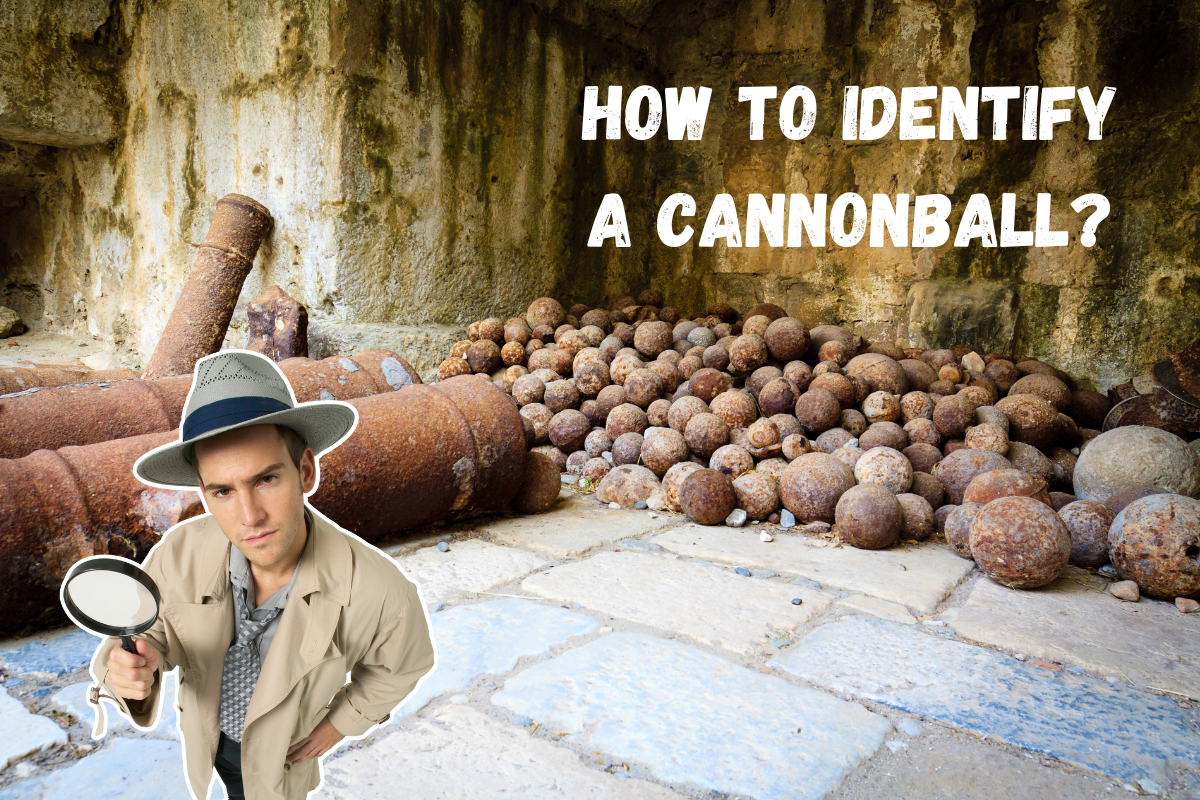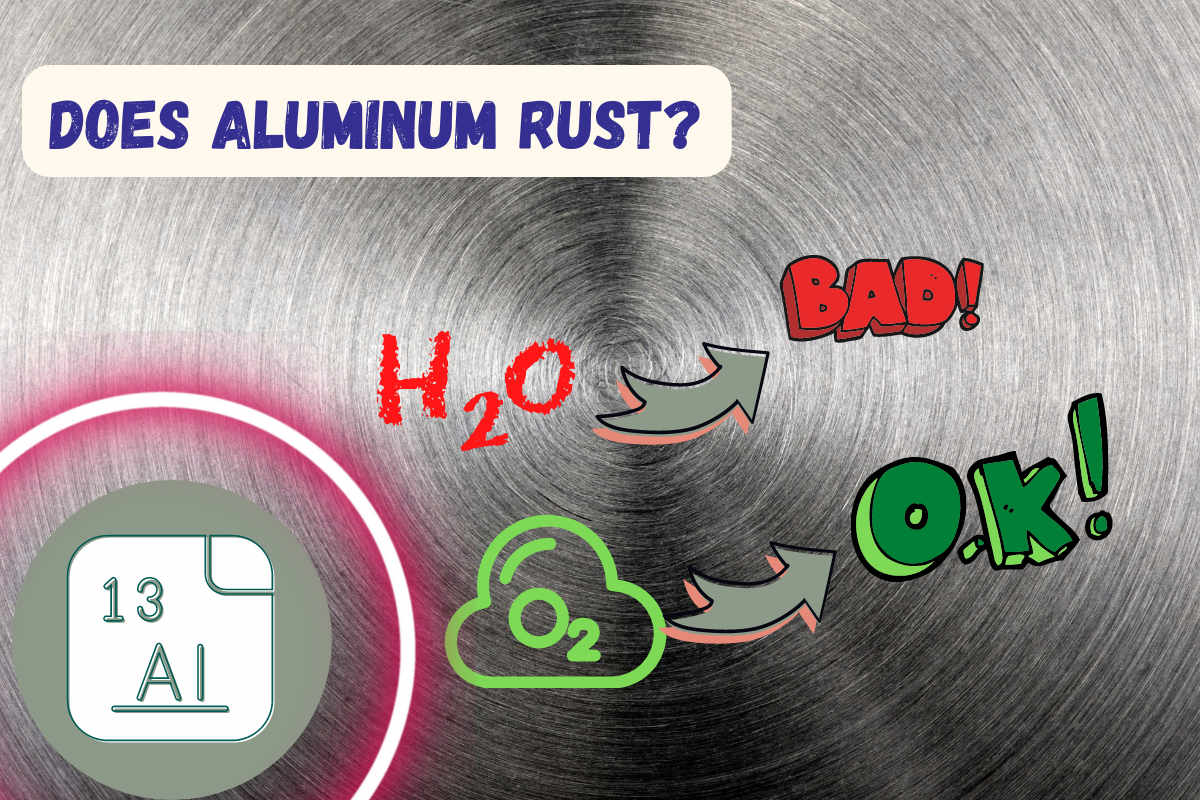If you’re interested in learning about all the metals that rust, head over to my article, which covers each in detail. It’s not a very big list, I promise. But if it’s only copper you care about, I’ve got you covered.
Copper won’t rust since it’s not a subgroup of the ferrous metal iron, which all rusting metals possess. However, copper does experience another form of corrosion that could be confused with rusting.
And depending on what your copper is experiencing, it could leave you vulnerable to dangerous chemicals…or not.
Corrosion of Copper
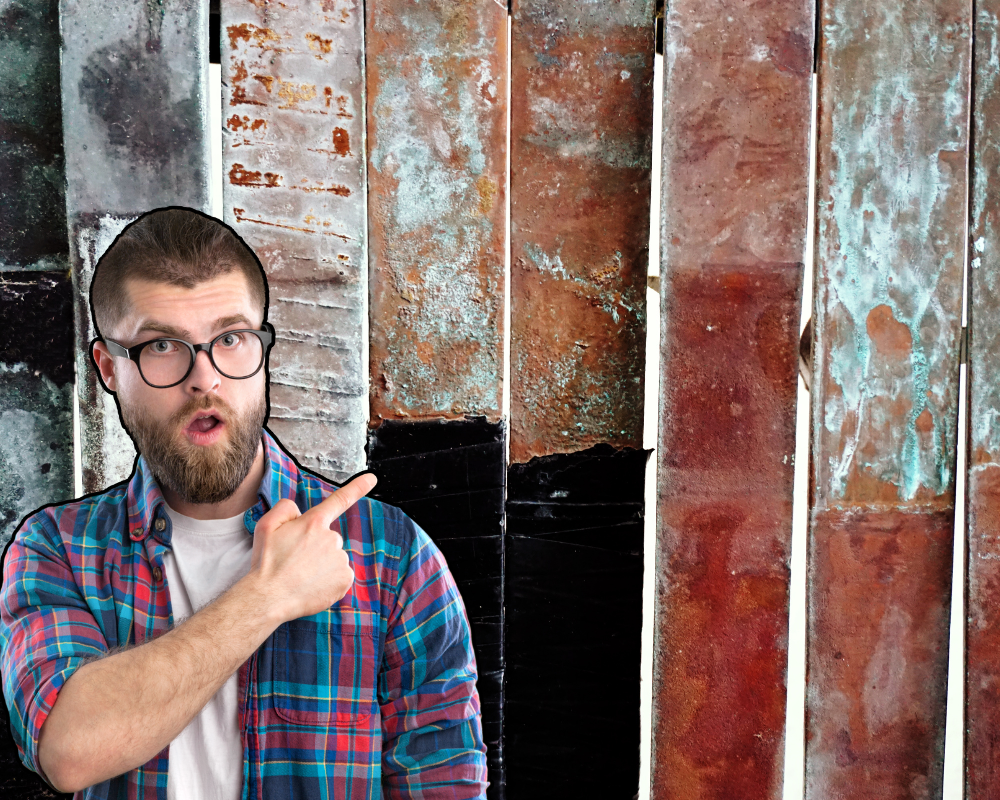
Ok, so copper won’t rust. But it can corrode. Well, what causes corrosion of copper to occur? I’m glad you asked!
Copper can corrode if the environmental conditions surrounding it are contaminated with harmful pollutants or even natural anions, which damage the copper’s passive layer and quicken the process of decay.
I know. That’s a lot of jargon to throw at your feet. Let’s break it down into smaller sections to explain. Two primary environmental factors are responsible for the corrosion of copper: water and air. And when these two variables effectively corrode a piece of copper, the surface metal forms a bluish-green patina, also known as an oxide layer.
Does Copper corrode in Water?
Let’s start with water.
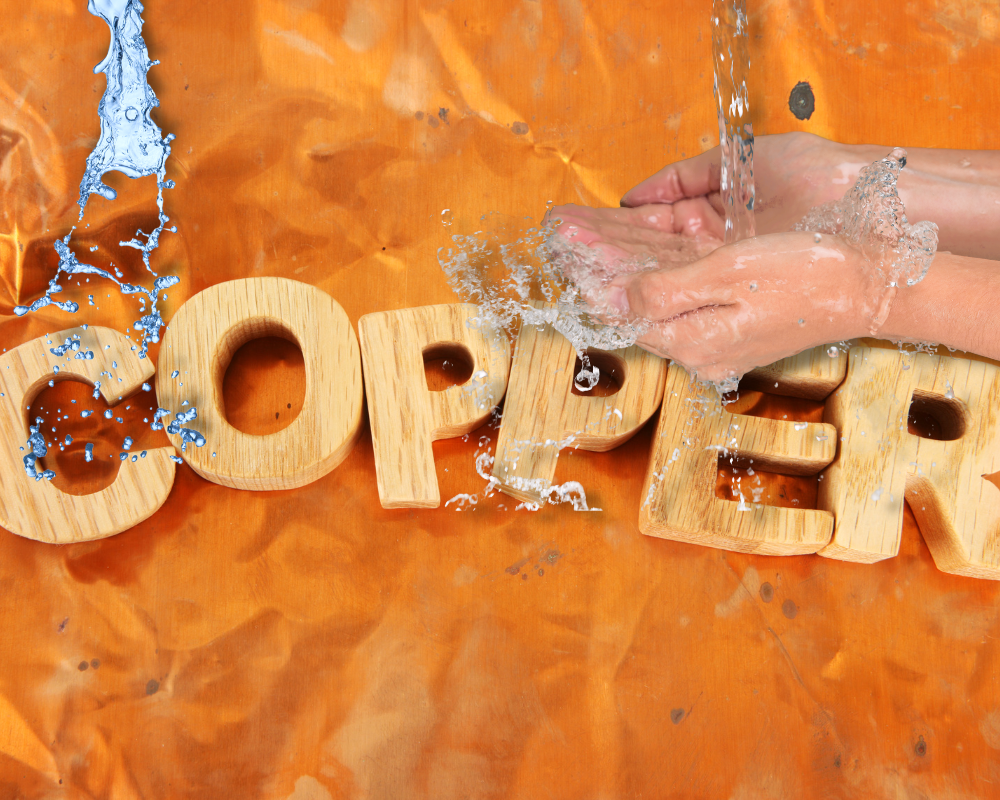
When copper corrodes in water, the cause is often attributed to aggressive elements such as chloride and sulfate ions.
But let’s back up for a minute. You see, when copper ‘corrodes,’ it can take on two separate meanings. Both meanings result in a passive film covering the surface metal and protecting it against further corrosion. The two classifications deviate when the air and water contain more fierce contaminants that eat away at this protective oxide and ultimately weaken the copper.
In simple terms, water is negatively corrosive to copper when the pH levels are imbalanced, and conditions like too much salt damage its integrity.
This might occur in soil conditions where the back and forth of changing seasons lead to a cycle of wet and dry states that speed up the corrosion process. Or in the presence of rushing water, where the abrasive impact of minerals tears away the oxide layer.
Those of us active in the metal detecting life know too well how time and environment will impact copper this way.
Does Copper corrode in Air?
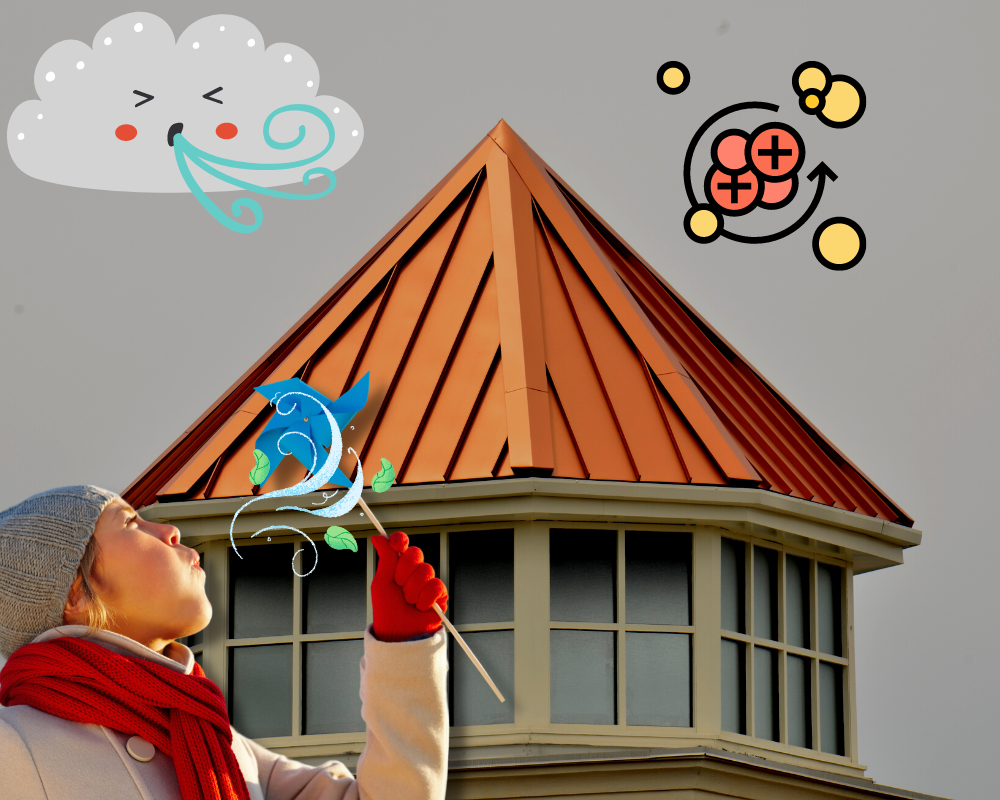
When water and air work together, copper can corrode and form the desirable corrosion type we already discussed. But oxygen can do even more harm to copper on its own.
To damage the passive oxide patina and further corrode copper, air only needs the presence of sulfur, chloride, nitrates, and organic acids. It might sound like a lot, but each component is readily prevalent in atmospheric gases depending on the location.
While these variables are the foundation of copper corrosion in the air, the process can be quickened in states of high humidity and extreme levels of corrosive ions.
There I go with the scientific jargon again! Try this on for size.
Copper will corrode faster in the air when pollution is higher. Granted, it’s more complicated than that and doesn’t need to rely on pollutants. But facts are facts. And that was a fact.
Does Copper corrode Over Time?
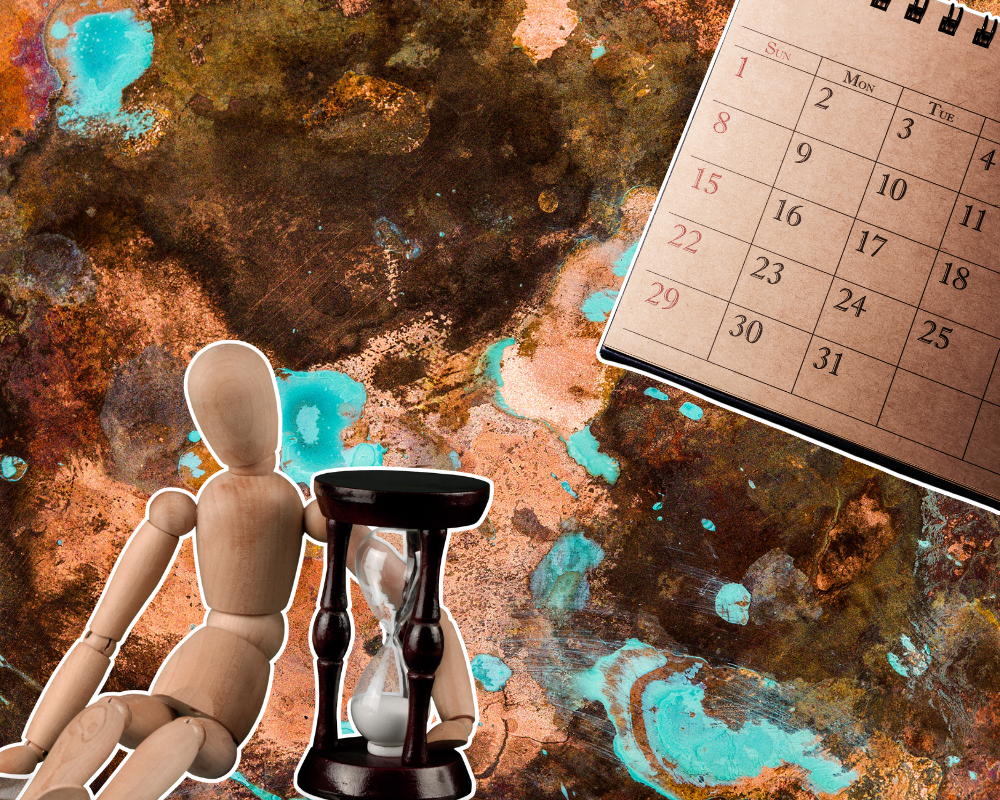
So how fast does copper corrode? Plenty of studies have been examined to show the corrosive rate of copper. And even though copper is one of the least reactive metals, the data tells an intriguing story.
With copper being less reactive than even zinc, it takes a considerable time to corrode. But the information collected more recently has indicated that the first appearance of oxide on copper takes only a few years as opposed to the once typical time frame of 20 years.
Could this be the cause of global warming or increased pollutant output? I don’t know. That’s way above my head. But it’s hard to ignore the change of pace.
A 2016 study of copper corrosion in the atmosphere drew several conclusions worth your time.
By studying copper corrosion in various environments, the amount of oxide formed each year on copper ranged from 0.5 microns to a high of just under 2.5 microns.
Specifically, the corrosion rate increased in environments generally thought to have more acidic output.
| Environment | Corrosion Growth |
|---|---|
| Rural | Roughly 0.5 microns per year |
| Urban | Roughly 1 to 2 microns per year |
| Industrial | Less than 2.5 microns per year |
| Marine | Roughly 1 micron per year |
What Causes Blue Corrosion on Copper Pipes?
If you’re an avid dirt digger like me, you’re used to cleaning up copper coins, and little surprises you about the sight of a bluish-green patina. But if you’re a homeowner who recently discovered their copper pipes oxidizing, it can be a shock. But the reasons behind it are the same.
That blue-green corrosion on your copper pipes indicates that the copper has begun to degrade because of the destructive water and oxygen factors inside your pipes.
As we discussed earlier, the presence of imbalanced pH levels, the rate of flow, or any number of pollutants in your water will lead to copper pipe corrosion.
Unfortunately, this is common. In homes with chemically treated water or where your water is sourced via a well, corrosion of your copper pipes is a sad truth.
Is Green Corrosion on Copper Pipes Dangerous?
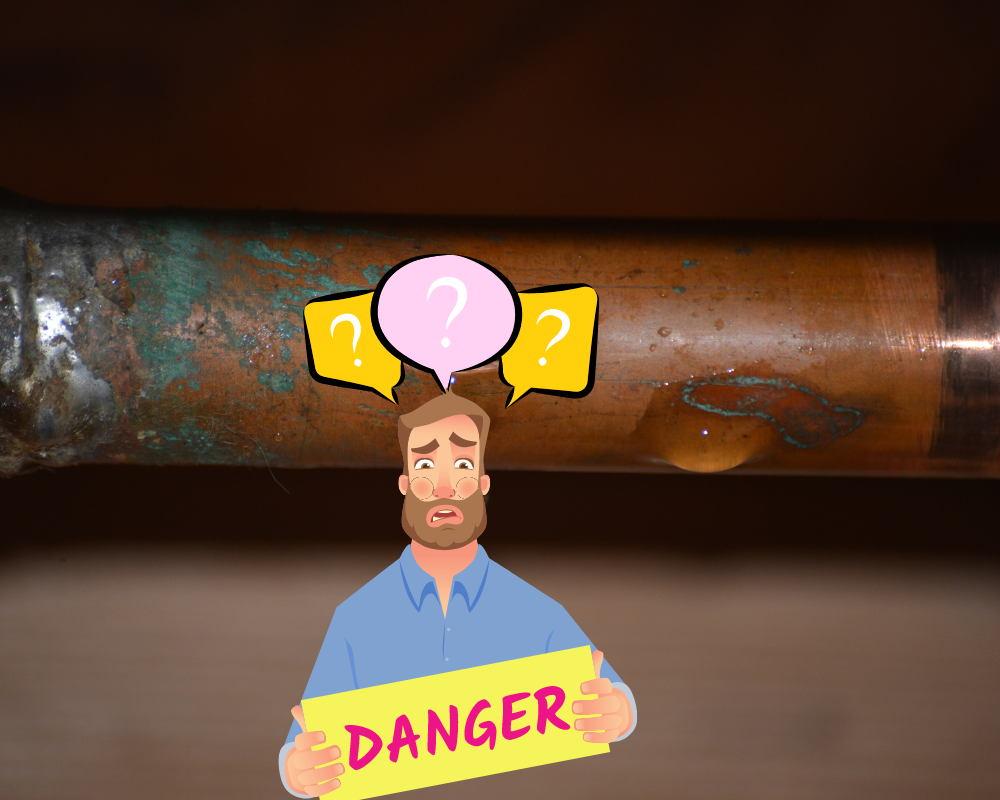
Your next question is undoubtedly about your safety. I get it! With words being thrown around like pollutants and oxides, you have to wonder what you’re drinking and washing with.
Don’t worry. Green corrosion on copper pipes isn’t dangerous to humans but can certainly spell trouble for your pipes.
The green corrosion you see may not be the patina coating but a contagious (to bronze and copper) bacteria known as Bronze Disease. Still, it won’t harm you. And unless you have an ancient plumbing system, my money is on it being a simple patina.
Harmful or not, I have a few suggestions if you want to clean off the natural patina on your copper pipes. But before you do, test your water and ensure you know the problem.

